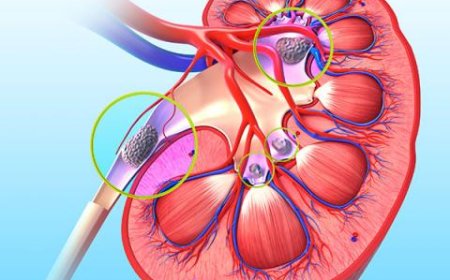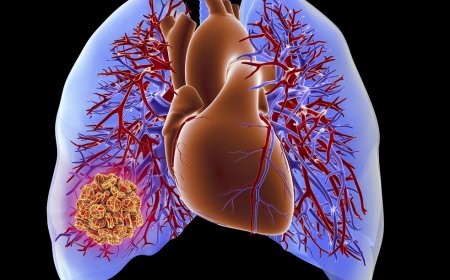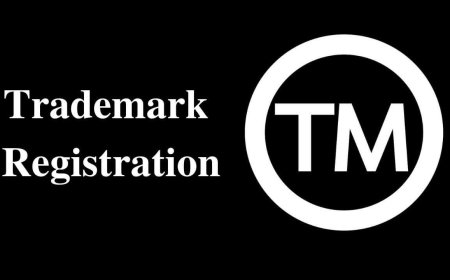Mass Tort Cases and Legal Nurses: A Deep Dive into Expert Medical Insights
Explore how legal nurses contribute expert medical insights to mass tort cases, helping to strengthen claims and ensuring a comprehensive investigation.

Mass tort cases involve large groups of plaintiffs who are harmed by similar causes, such as defective drugs, toxic chemicals, or dangerous medical devices. These cases often require the coordination of numerous legal and medical experts to assess and prove the claims. In this intricate process, the contribution of a legal nurse plays a critical role. A legal nurse provides essential medical insights that strengthen the case, allowing attorneys to build a more compelling argument for their clients.
A legal nurse is a professional who bridges the gap between medicine and law. With extensive knowledge in both healthcare and legal procedures, they serve as a vital asset in mass tort cases by offering medical expertise and advice. This article explores the ways in which legal nurses offer valuable medical insights into mass tort cases, focusing on how they contribute to case preparation, evidence analysis, expert testimony, and overall legal strategy.
The Role of Legal Nurses in Mass Tort Cases
Mass tort cases often deal with complex medical evidence, such as patient histories, treatment protocols, and the effects of harmful products or substances. A legal nurse plays an essential role in deciphering this evidence and ensuring that it is presented in a clear, organized manner to support the claims made in court.
1. Medical Record Review and Analysis
One of the most significant contributions a legal nurse makes in mass tort litigation is the review and analysis of medical records. In mass tort cases, there are often thousands of medical records to examine. A legal nurse helps streamline this process by sorting through these documents to identify key pieces of medical evidence that support the plaintiffs' claims. This includes recognizing patterns of injury, misdiagnoses, and failures in medical care that are directly linked to the defendant's product or action.
In cases involving pharmaceuticals, for instance, a legal nurse will carefully examine each plaintiff's medical history to assess how a drug may have contributed to their injuries. They will also investigate whether appropriate warnings were given and whether proper medical procedures were followed. Their ability to identify key facts in medical records ensures that only the most relevant and compelling evidence is presented in court.
2. Establishing Causality and Linkage
A crucial part of any mass tort case is proving the connection between the plaintiffs' injuries and the defendant's product or actions. Establishing causality can be a daunting task, especially when dealing with hundreds or thousands of claims. A legal nurse is well-equipped to help attorneys establish this link by assessing how specific products, drugs, or actions contributed to the injuries sustained by the plaintiffs.
For example, if a mass tort involves a defective medical device, a legal nurse will examine the ways in which the device malfunctioned and how that malfunction led to the plaintiffs injuries. They can explain the medical mechanisms behind the injury and how the product's failure directly caused harm. This medical expertise strengthens the argument and helps make the causality clear, even to a non-medical audience such as a jury.
Expert Testimony and Legal Strategy
In mass tort cases, expert testimony is often critical for convincing the court of the validity of the plaintiffs' claims. Legal nurses can serve as expert witnesses, providing medical insights and explaining complex medical issues to the judge or jury in a way that is easy to understand. Their contribution goes far beyond merely reviewing medical recordsthey actively assist in presenting medical evidence in a manner that supports the case.
1. Providing Clarity and Precision in Testimony
A legal nurse can provide expert testimony in various aspects of the case, such as the standard of care, the cause of injury, and the expected medical outcomes of using a particular product or drug. Their ability to break down complex medical concepts and present them in an easily digestible format is vital in mass tort cases, where the technicalities of medical evidence can overwhelm the legal process.
For instance, in a case involving an environmental toxin, a legal nurse may testify about the health risks associated with exposure to the toxin, the typical medical outcomes, and the relationship between the defendants actions and the plaintiffs health conditions. Their testimony helps to clarify the medical evidence and supports the legal strategy of the plaintiffs' attorneys.
2. Interpreting Medical Concepts for Attorneys
Attorneys, even those experienced in mass tort litigation, may not have the medical background necessary to fully understand the nuances of medical records or expert testimony. Legal nurses serve as interpreters of medical information, helping attorneys comprehend complex medical issues and use that knowledge to develop a more effective case strategy. By providing explanations of medical terminology, treatment protocols, and the typical progression of injuries, legal nurses empower attorneys to build stronger, more informed legal arguments.
Case Management and Medical Documentation
Mass tort cases are often large-scale endeavors involving numerous claimants, each with unique medical histories. Managing the documentation for such cases can become overwhelming. A legal nurse provides invaluable support in this area by organizing and reviewing medical records, ensuring that important documents are easily accessible and properly categorized.
1. Systematic Organization of Medical Evidence
A legal nurse helps organize medical records in a systematic and efficient manner. By creating a structured database of the medical evidence, they enable the legal team to quickly access relevant documents during discovery, depositions, and trial preparations. This organization reduces the risk of overlooking important information and ensures that all evidence is available for review when needed.
In addition to organizing records, a legal nurse can prioritize the most significant documents, helping attorneys focus their efforts on the most relevant pieces of medical evidence. This careful management allows the legal team to work more efficiently and avoid unnecessary delays.
2. Minimizing Errors and Risks
The complexity of medical data in mass tort cases means that there is always a risk of errors when reviewing and interpreting the records. Legal nurses help mitigate this risk by ensuring that medical information is thoroughly checked for accuracy and relevance. Their attention to detail prevents critical mistakes that could undermine the case, such as overlooking vital information or misinterpreting medical facts.
Collaborating with Attorneys to Strengthen Legal Strategy
The relationship between legal nurses and mass tort attorneys is a collaborative one, where both parties bring unique skills to the table. The legal nurses medical insights complement the attorney's legal expertise, creating a powerful synergy that strengthens the case from start to finish.
1. Supporting Legal Arguments with Medical Facts
A legal nurse helps attorneys build a more robust case by providing medical facts that support legal arguments. They work closely with attorneys to ensure that all medical evidence is properly presented and that the legal team understands the significance of the medical information. This collaboration ensures that the medical facts are seamlessly integrated into the legal strategy, increasing the chance of a favorable outcome.
2. Strategic Planning and Case Evaluation
A legal nurse can also assist in evaluating the strengths and weaknesses of a mass tort case. By reviewing the medical records and identifying key medical evidence, they can help attorneys assess the potential success of the case and determine the best legal approach. This proactive involvement allows the legal team to adjust their strategy as needed, ensuring that they are always moving in the right direction.
Conclusion
The role of a legal nurse in mass tort cases is crucial to ensuring that the case is thoroughly prepared, medically sound, and strategically strong. From analyzing medical records to providing expert testimony, legal nurses offer valuable insights that help attorneys build a compelling case for their clients. Their expertise in medical matters strengthens the legal process, ensuring that plaintiffs have the best chance of receiving justice. By collaborating with mass tort attorneys, legal nurses provide the expert medical insights that make the difference between a successful claim and a missed opportunity.































